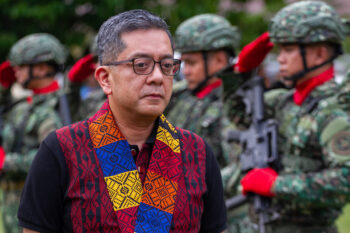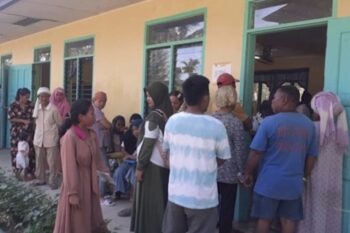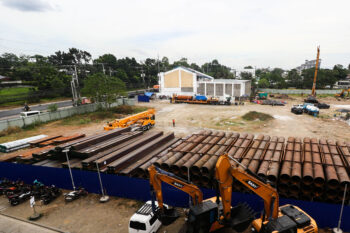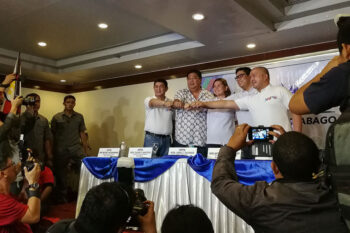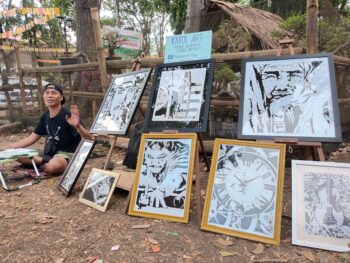CAGAYAN DE ORO CITY (MindaNews / 3 Sep) – Years of peace-making efforts, negotiations, and bending-over-backwards to accommodate the recalcitrant have not freed Mindanao of turmoil and violence. No sooner is one initiative or negotiation concluded than a new set of renegades and blood-thirsty elements enters the fray.
It’s the steep price we pay for tolerating bad governance and for our government’s failure to institutionalize democracy effectively.
Bad governance bastardizes law and order, autonomy, and peaceful dispute-resolution processes.
Our weak commitment to democracy prevents society from becoming more civilized and allows its desperate elements to commit barbaric acts.
Much of this can be blamed on the central government for, on one hand, its cavalier treatment of the constituents and their dysfunctional local governments and, on the other, its coddling of warlords and strongman-style leadership
*****
There’s also its failure to prime the local governments for autonomy and resourceful problem-solving. When trouble erupts, it makes up for the local government’s lack of leadership or initiative by taking over, arrogating its role, sidelining its leaders.
This style of governance—tolerating complacency and non-performance, then stealing the scene when trouble erupts—has caused much trouble for Mindanao and Mindanaons.
It was manifest in Zamboanga during the MNLF imbroglio when the President camped out in the area supposedly to oversee operations—the commander-in-chief in action! It happened again in Tacloban in the wake of Typhoon Yolanda.
The take-over and top-level interventions sidelined the locals and, when the smoke cleared, citizens and leaders were left holding the bag. So much for autonomy or the principle of subsidiarity.
*****
Now we wait in suspense wondering about the fate of the Manila-supervised crafting of the Bangsamoro Basic Law. And people wonder: Why is there so much firing and bombing still? Are the MILF into peacemaking for real? Are our armed forces equal to their mission? Questions are hanging, twisting in the air.
If peace is at hand, why does the public mood feel like there’s a stand-off? Is peace a package to be signed, sealed, and delivered first before its contents can be unfolded, tasted, and savored? Why can’t there be programs that foster and promote peace even now, along with its related concepts of citizenship and nation-building?
Meanwhile, will there be an effort to integrate these concerns into the educational curriculum? How about community development: are facilitators, teachers, or community organizers working hand-in-hand with locals to promote autonomy and self-governance? Or will everything hinge on the whims and caprices of warriors still armed to the teeth, threateningly poised to strike at a moment’s signal?
In much of Mindanao today, there’s apprehension that any effort towards these ends may now be too late amid fears that issues are already too convoluted and overly politicized while narrow agendas are embedded ever more deeply in the psyche of the protagonists—as exemplified by the increasingly aggressive, increasingly well-armed Bangsamoro Islamic Freedom Fighters.
*****
The road to peace now appears strewn with potential problems posed by elements that claim with increasing ferocity the ownership of the intifada, backed by formidable ordnance and fire-power acquired in the course of the “peace process.”
As Mindanao waits askance, the issue of good governance remains the overarching question. Would that the local governments were already capacitated, able to mobilize their constituents for peaceful ends, and primed for inclusive development.
In the order of things, peace-making ought to have already permeated their programs and activities by now, well along in promoting peace as a way of life within a democratic framework.
Such a regime would also seek to wean people away from reliance upon strongmen for leadership—which has spawned the rise of bullying politicos and warlords and their feudal ways, making democracy in the region that much more difficult to cultivate and institutionalize.
*****
Our island region has had more than enough of imperious leaders—the antithesis of democratic leadership and statesmanship, of which we are in short supply.
Mindanaons badly need to be led away from the swagger of oligarchs whose dominance and polarizing presence in governments on all levels fuel dissent, anger, defiance, insurgency.
We need leaders who promote harmony, cooperation, and self-reliance. Statesmen, not strongmen!
[Manny is former UNESCO regional director for Asia-Pacific; secretary-general, Southeast Asia Publishers Association; director, Development Academy of Philippines; member, Philippine Mission to the UN; vice chair, Local Government Academy; member, Cory Govt’s Peace Panel; awardee, PPI-UNICEF outstanding columnist. He is president/national convenor, Gising Barangay Movement Inc. valdehuesa@gmail.com]

